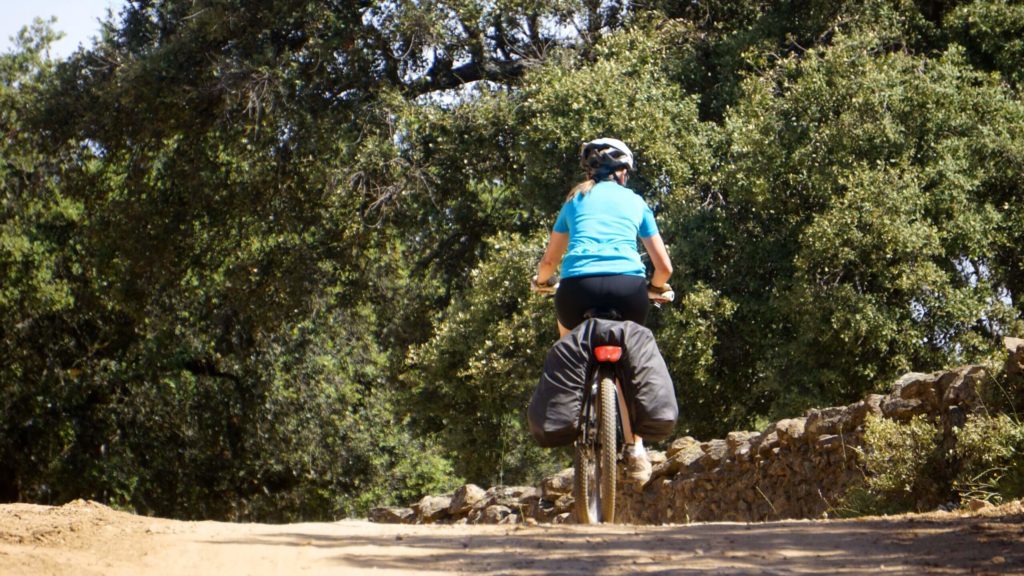The Mediterranean: Shaping the Future of Tourism
The Glasgow Declaration on Climate Action in Tourism aims to accelerate climate action in the sector.
The Mediterranean is the world’s leading tourism region, accounting for 35% of all international tourist arrivals and 30% of global tourism receipts. Sadly, it also happens to be a climate change hotspot warming faster than the global average, putting the region on the front line for climate action. It is therefore of no surprise that tourism was one of the main themes addressed in the first-ever Mediterranean Pavilion at COP27 in Sharm El Sheikh (Egypt).
The Glasgow Declaration on Climate Action in Tourism – launched at last year’s COP26 – placed the need to discuss the tourism sector during climate conferences high up on the priority list. This need was emphasized once again in the Mediterranean Pavilion of COP27, with Virginia Fernández-Trapa – Program Officer of Sustainable Tourism, World Tourism Organization (UNWTO) – stressing that “It is very important that we are together enhancing the presence of tourism at COP27. I think we are on the right track but there is still a lot to be done.”
The Glasgow Declaration, as explained by Fernández-Trapa, was developed because “climate action in tourism was insufficient or not approached in a consistent manner”. The declaration highlights the need “to secure strong commitments to supporting the global goals to halve emissions over the next decade and reach Net Zero emissions as soon as possible before 2050.”
Since it was launched in 2021, more than 700 businesses, destinations, civil society groups, and countries have signed up, committing to decarbonize, regenerate and measure, in order to halve their carbon emissions by 2030 and reach Net-Zero by 2050, at the latest.
Implementing sustainable tourism
“Unlike other declarations, the Glasgow Declaration obliges signatories (currently 720) to draw up and implement an action plan within one year of signing,” explained Josep Rodríguez – Interreg MED Sustainable Tourism Community Coordinator, Barcelona Provincial Council – in a short interview with REVOLVE. He also underlined that the declaration is linked to the European tourism transition roadmap Tourism Transition Pathway.
In a debate held at the Mediterranean Pavilion of COP27, Jeremy Smith – Co-founder of Tourism Declares a Climate Emergency – highlighted that “frameworks only become real when translated to local communities.” Smith, who was the moderator of the debate organized by Interreg MED Sustainable Tourism Community, went on to say that “seeing Interreg in the same forum as the UNWTO is part of that transferring of frameworks to the local level.”

The Sustainable Tourism Community is one of the catalyzers for bringing initiatives such as the Glasgow Declaration down to the local level. “The community works in Mediterranean coastal areas to exploit the potential of tourism to regenerate the environment, to preserve its beauty, and also to foster a more competitive and sustainable business model for tourism,” explained Ermete Mariani – Sustainable Tourism Community’s Communication Manager, UNIMED (Mediterranean Universities Union).
Since 2016, the Interreg MED community has worked in the same direction. It has engaged with 286 organizations in thirteen Euro-Mediterranean countries, with the aim of promoting more sustainable tourism and increasing the resilience of relevant actors within the sector. Josep Rodríguez explained that the community had developed actions in three main areas: evaluation of tourism impacts, development of solutions on water and waste management; and improvements in planning with integrated tourism management.
What we need is less carbon-intensive tourism that connects with locals.
Jeremy Smith – Co-founder of Tourism Declares a Climate Emergency
The community is now entering a new phase under the new Interreg Euro-MED Program, where it will continue to boost less carbon-intensive tourism in the region. “We don’t start from scratch we have a critical mass and we are recognized as interlocutors. But we start a new project with new priorities,” emphasized Rodríguez. The community will focus on making the link between tourism and climate change clearer to both the industry and the citizens. As Rodríguez pointed out “at the moment, the link between sustainability and tourism is clearer but not the one with climate change.”
The Interreg MED Community will keep working in line with this goal in accordance with four axes: innovation and new technologies; circular economy; biodiversity and climate change. “We have seen a change since the beginning of the community in 2016. Now people don’t talk about sustainable tourism but regenerative tourism,” the community coordinator affirms. However, there are so many actors involved in the tourism sector that change can often be slow and difficult.
“Tourism is connecting with humans, relaxing, and getting away from work. Making tourism more sustainable is therefore not as simple as saying that we can’t travel as much” underlined Jeremy Smith in an interview with REVOLVE, concluding that “what we need is less carbon-intensive tourism that connects with locals.”